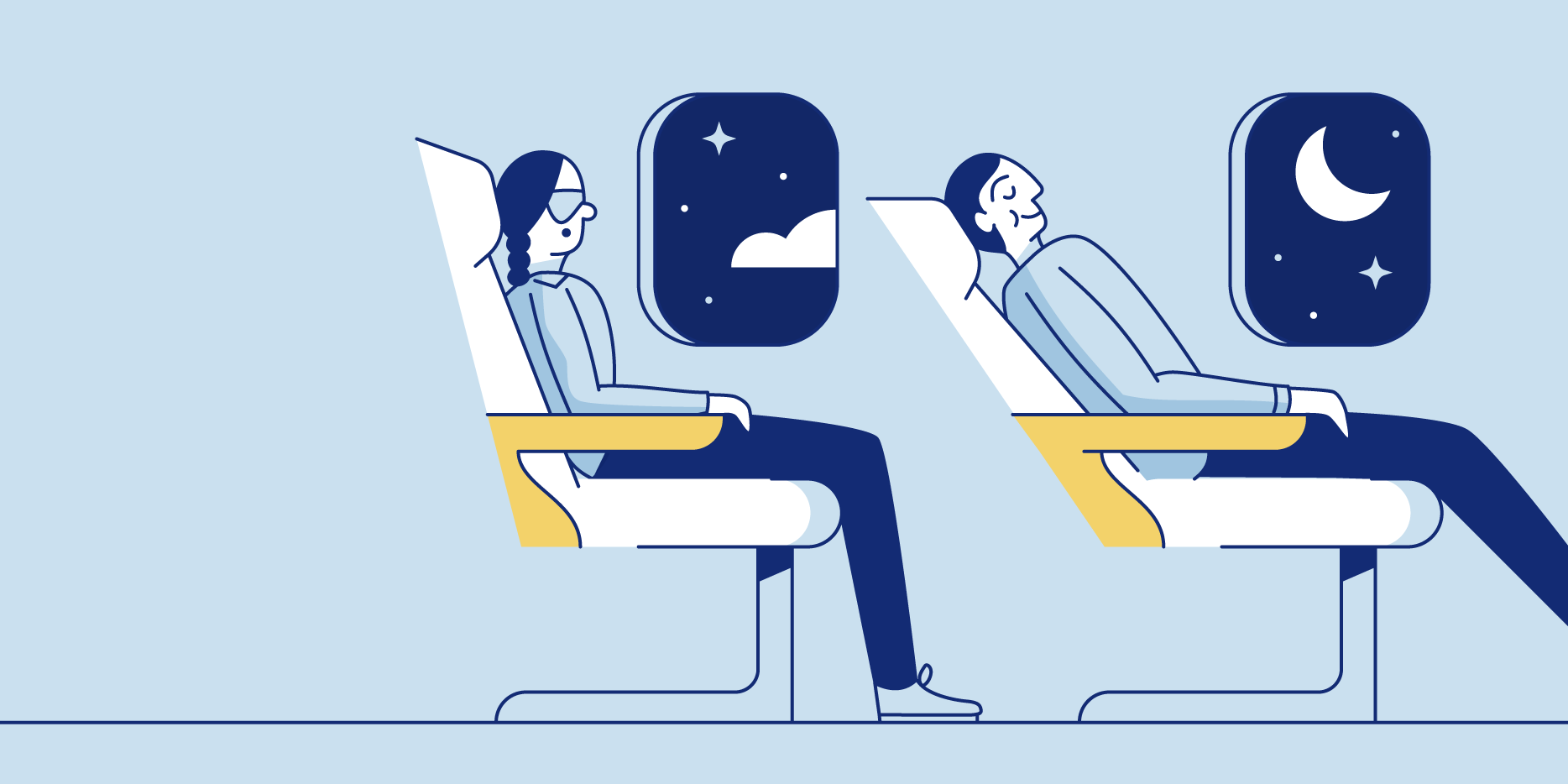To say that air travel can be stressful is an understatement. Long lines, security, surprise changes to your itinerary, keeping track of your luggage…the list of stressors goes on and on. Perhaps it comes as no surprise, then, that in a recent study, some travelers even reported feeling more stressed after their vacations than before.
However, there are some steps that travelers can take to reduce stress during travel. For example, once you navigate the airport chaos and make it to your flight, your time on the plane can also be a great opportunity to catch some sleep.
While a plane isn’t the most ideal sleeping space, you can use some hacks to make your seat more amenable to sleep. Experts recommend that you get seven to eight hours of sleep each night, and even a quick power nap can help you catch up on missed sleep, de-stress, feel more energized, and mentally prepare yourself to tackle the next leg of your travels.
Here are some tips for ways to learn more about how to get more and better-quality sleep and fight jet lag on your next flight.
Turn off electronic devices. Cell phones, tablets, laptops, and other personal electronic devices contain a bright LED backlight that can interfere with the natural sleep-wake cycle. Since you will need to put your phone in airplane mode for your flight anyway, you may opt to avoid using your smartphone so you can avoid the backlight and get better sleep. If you do use your smartphone or tablet during the flight, make sure to turn the screen’s brightness to the lowest level to ensure that the device’s backlight does not trick your brain into a state of wakefulness, which can interfere with your ability to sleep.
Avoid alcohol. While you may think that a drink will ‘take the edge off’ and allow you to sleep soundly, the truth is that alcohol can interfere with sleep quality and cause you to get more interrupted sleep. Alcohol also reduces the amount of time your body spends in deep sleep, leading you to wake up feeling groggy and tired.
Limit your caffeine intake. Those who are coffee and tea fiends know that a caffeine jolt can give you the energy you need to navigate the airport to make it to your flight. However, if you are planning to sleep on the plane, you should limit your caffeine intake. Caffeine can stay in the body for up to 14 hours, affecting the circadian rhythms and interfering with your ability to sleep on the plane.
Make sure you’re not too hot or too cold. While science indicates that 60 to 65 degrees F is the best sleeping temperature, airplane cabins are typically kept around 70 degrees Fahrenheit and can experience temperature changes of up to 50 degrees. To make sure you can adapt to the temperature extremes, dress in light, removable layers so that you are comfortable during your flight.
Snack on sleep-friendly foods. Bananas, which are high in potassium, can help promote better sleep because they help regulate blood pressure. For the best sleep, avoid heavy and fried foods.
Other tips? Consider the use of a light-blocking eye mask, aromatherapy, and/or listening to pink noise (think rustling leaves and waterfall sounds) to promote a calm environment. Finally, you may want to practice mindfulness meditation, which can reduce insomnia and lead to better sleep. For even more science-backed tips on how to get more shuteye when flying, check out the following infographic from the sleep experts at Casper.



